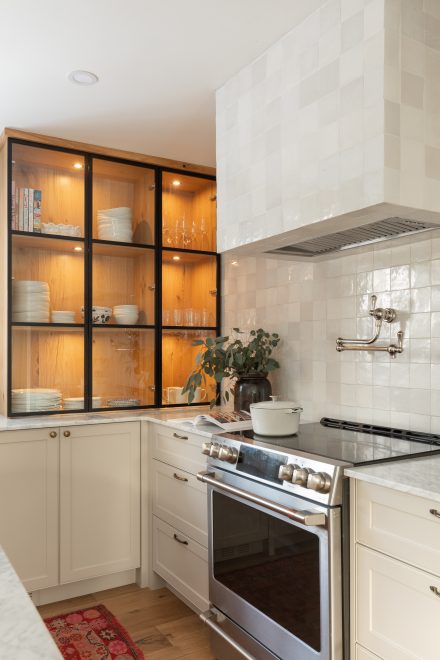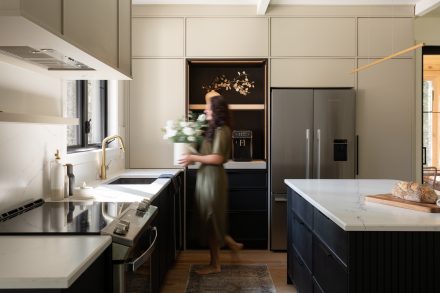
Hello, it’s a great day to start a project.
Choosing the right professionals for your kitchen project is crucial, but the abundance of options can quickly overwhelm anyone not familiar with kitchen design. As you embark on your kitchen journey, you’re filled with excitement, but the question remains: how do you navigate this unfamiliar world?

Your first decision revolves around who will create the manufacturing concept for your kitchen. You have two choices: hiring a designer or dealing directly with the kitchen builder. If your project involves major renovations affecting multiple rooms, hiring a designer is recommended. They will guide you through room layout and material choices. However, if your project is more focused, working with a kitchen builder can bring technical expertise and a planned approach to your kitchen’s concept. The ideal option is a hybrid approach, combining a designer for overall layout and a kitchen builder for cabinetry.
Beyond financial considerations, the selection process extends much further. Thoroughly researching cabinetmakers is essential, given the vast number available in Quebec.
Ask about the company’s stability: their longevity in the industry, innovation in building practices, and adherence to modern design and storage solutions. Examine their showroom’s standards to gauge the quality you can expect. A well-maintained showroom reflects the care invested in your project’s outcome.
It’s also important to ensure that they are manufacturers, not mere distributors, which is common in the industry. Opting for a cabinet company that produces their own cabinets ensures better quality control and facilitates effective communication throughout the project.
A kitchen designer is a professional who works with customers to bring their kitchen vision to life. With a keen eye for detail and a knack for optimizing space, the kitchen designer helps homeowners create the perfect culinary haven for meal preparation and gatherings. To succeed in this role, the designer must have exceptional organizational skills, as well as expertise in styling, interior design, and a very good knowledge of materials. This ensures seamless integration of the final product with the existing décor while prioritizing functionality and safety for the entire family. From cabinets and countertops to islands and other elements, kitchen designers harmonize every aspect to meet your specific needs.
Expect to spend a lot of time working closely with your kitchen designer. Their specialized training enables them to understand your requirements and deliver aesthetically pleasing and practical outcomes. It’s crucial to choose a designer who aligns with your preferences. Review their portfolio of previous projects to ensure a harmonious working relationship.
A kitchen designer assumes multiple roles as they document your needs, create layout plans, generate realistic 3D concepts, and oversee every phase of your project. They act as the designer, creator, and project manager, ensuring a comprehensive and seamless experience. Choosing a designer who fulfills these criteria is paramount to avoid potential complications during the process.
Presenting a thorough and precise manufacturing concept is very important. Beware of estimates provided without a well-defined plan—akin to buying a car without seeing it beforehand. Unfortunately, some cabinet companies still operate with this approach.
When exploring similar concepts, companies may receive varying awards, highlighting the importance of asking the right questions. While our reflex is often to opt for the lowest price and question higher estimates, it’s crucial to reverse the inquiry. Why is one estimate lower than others for a comparable concept? There’s undoubtedly a reason behind it, and it directly impacts the final product’s quality.
Essential Questions to Consider:
Choose a company and kitchen designer that is still utmost confidence in you. While cost-saving may be tempting, remember that your kitchen will be an integral part of your life for years to come. Making the right decision is crucial. By diligently selecting a cabinetmaker and working collaboratively with the designer, you can establish a budget for the project and strive towards its successful realization.